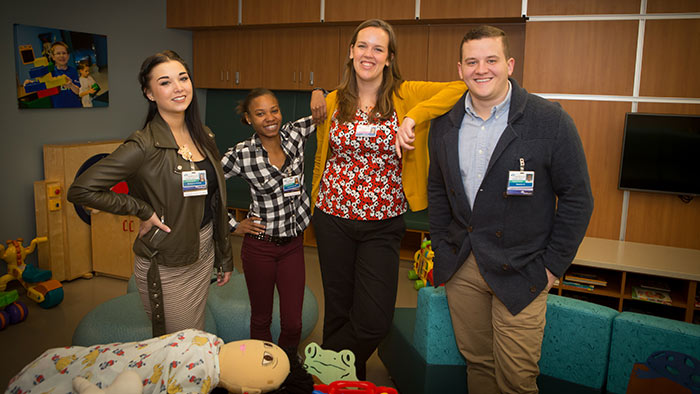Advanced Track
Enhance the depth of your child life understanding and practice
Advanced Track Admission Requirements
- Bachelor's degree with an emphasis or minor in child life or a bachelor's degree and currently hold certification as a Child Life Specialist
- Cumulative undergraduate grade point average of 3.00 or higher
- Applicants for whom English is not their primary language are required to demonstrate graduate-level proficiency in English by either having achieved a score of 550 on the paper-based, or a comparable score of 79 on the IBT or internet- based TOEFL, or by other equivalent means.

Careers and outcomes
Make your work more meaningful as you take on new endeavors.